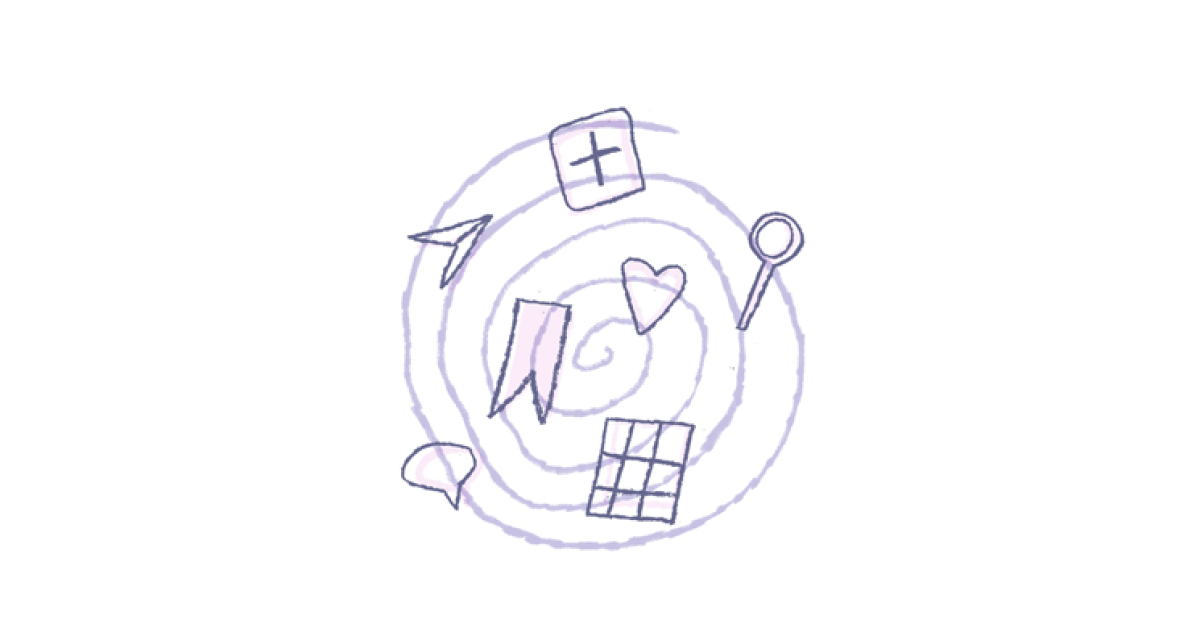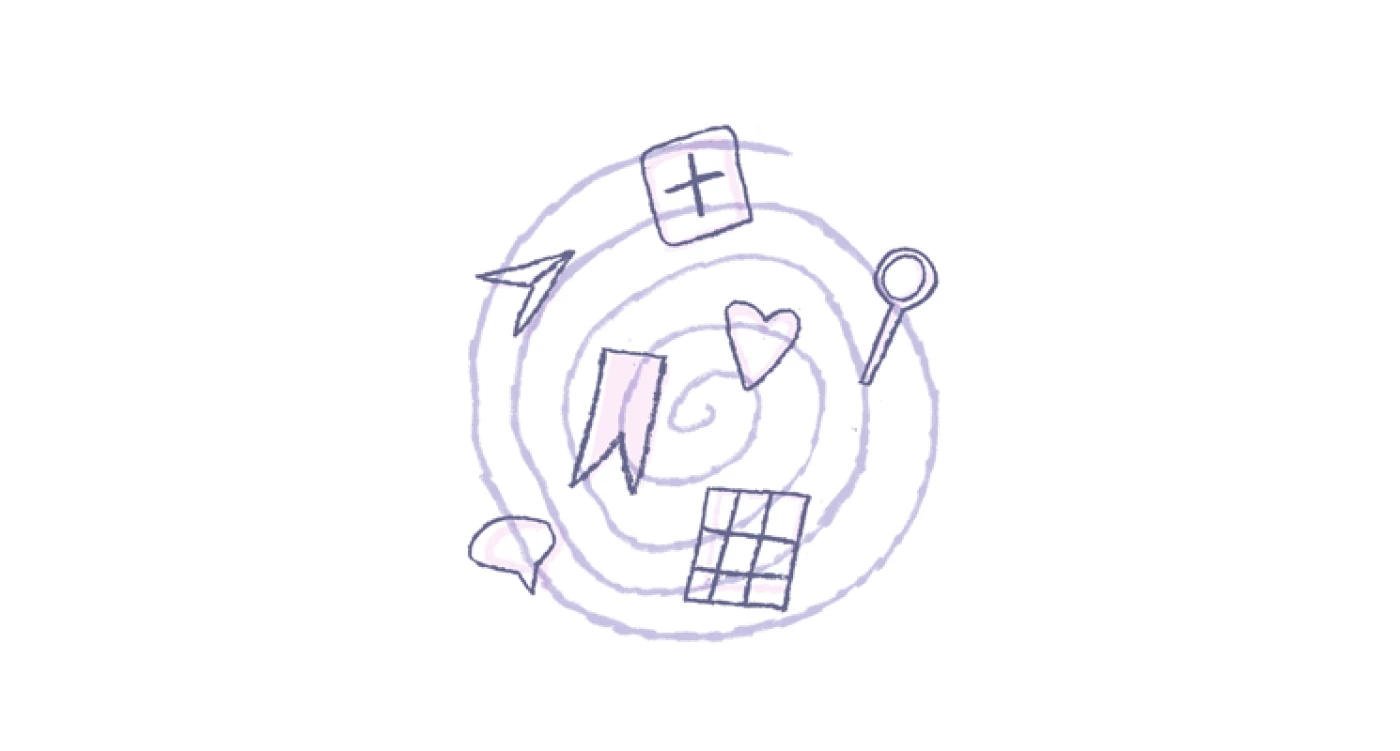This website uses cookies in order to enhance the overall user experience.
Essay 02: Social Meedz
Social Meedz - the second of screenwriter and director Harry Hitchens' five part essay series. Featuring illustrations by the talented Laina Deene.
For many years, I’ve been locked into my Instagram account. This is not only due to my blatant and intense screen-addiction, but because I literally couldn’t log out without losing my account forever. I’m verified (brag) and the app wouldn’t let me reset my password, which I had forgotten, without contacting Instagram. If you’ve ever tried to contact instagram you’ll know that it’s a quest of equal complexity to that of dropping a golden ring into Mount Doom. It’s achievable, but only in a world where hobbits and sorcerers exist. As a six-foot-four man of this realm, I had no chance.
So there I was, unable to log out of Instagram for fear of never being able to log back in. Any attempt at a social media cleanse would in fact be a permanent, cold-turkey, social-sobriety pact. I’d love to say that I suddenly grew brave, deleted the app regardless of the consequences and now live a life free from the chains of Zuckerberg and his nifty gang of meta-heads, but no. I stayed. Work as a creative can be defined by your social media presence and a man’s gotta eat!
I remember joining Instagram almost as soon as it was founded. I was at school and receiving more than 20 likes on an image felt electric. It’s rare for someone who is in the business of creation, in any discipline, not to want some form of audience and from that, validation. I started out my creative career taking pictures of bands. With the birth of Instagram came a new form of attention, a new way to get bums on seats and in front of my work. I didn’t need to catch the attention of magazine editors or galleries to feel seen and heard as a creative: I had the gram.
As I transitioned into the world of film, the virtual community of people I had built around me over the course of ten years felt like a warm, safe space. Sure, there were some exceptions. When I co-founded Ban Conversion Therapy I received death-threats galore, but Florence Pugh shared my post so fuck ‘em. That community is what made it so hard to leave Instagram knowing I might never get back into my account. Although the dopamine-inducing addiction is partly to blame, I really do think the main thing that kept me scrolling was the friends and colleagues that I loved to engage with.
But things changed when TikTok barged into my life. Like many of us, I avoided it for a fair amount of time, quietly aware of the grip it could have over me. But after a year of refusing to download the Tok, the near-perfect algorithm had won me over. Dog videos, older people being funny without realising and the occasional twink: they had me. My screen time went up by hours a day, constantly encouraging me to curate my online experience. It couldn’t go on like this forever. Something had to give. Then, a message from a friend who works at Instagram: “I can reset your password if you want?”
This was it, my opportunity to get out without the risk of never returning. My chance to test whether life with out the social meedz was worth living. I deleted Instagram and thought fuck it, why not get rid of it all? I deleted all the apps, keeping the accounts. Twitter, TikTok, Instagram… even bloody LinkedIn were all gone from my device. Gone. A silence fell, draping my mind in a quiet anxiety that I hadn’t experienced before. The main thought that came to me? “What the fuck do I do now?”
The first day was interesting. Other than feeling free and thinking about life a little more than I usually do, old habits started to creep back in. I would unlock my phone, flick to the side and go to tap the non-existent Instagram icon… all automatically, without remembering I had deleted it mere hours before. One evening in the first week I genuinely found myself scrolling through my photos folder from years gone by - like some sort of weird offline Instagram where my past self is the only account I follow.
But after the initial withdrawal symptoms started to dissipate, I started to feel the benefit. Yes I had more time to let my mind wander, yes I was noticing a bit more than I usually do - I even started to check in on my friends more directly by calling or texting instead of just watching their stories each day and taking it at face value. But the most dramatic thing, which may seem small, was proving to myself that without being logged into Instagram, I was still working… I was still happy. The world didn’t end, my jobs didn’t stop coming in - it was proof to me that I could actually live without it, which was encouraging.
Would I have got to where I am now without the community I’ve built on Instagram? Almost certainly not, but the level at which I was using it previously didn’t make my life richer. This realisation felt good. There is a certain irony in that the majority of the people who’ll read this piece will have found it on Instagram. So I couldn’t possibly argue that it’s useless or even to be avoided. But I can say that the few weeks I took away from it all made me appreciate how I might be able to alter my relationship with social media to better protect my wellbeing and my work, which I’m pleased to say has worked so far. And TikTok? I haven’t re-downloaded her: she’s too powerful.
Read Essay 01: "Access" here.


